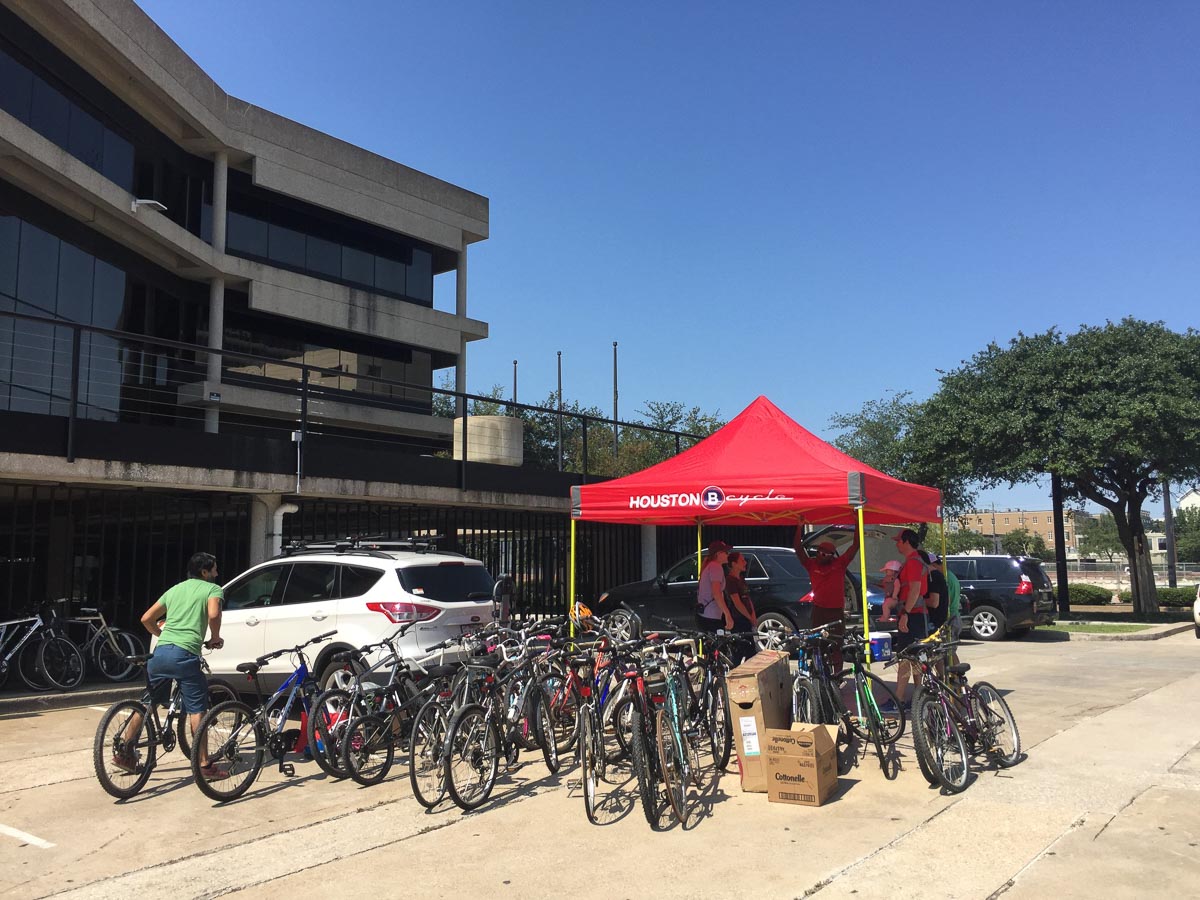Before Harvey made its way to Houston, dumping unprecedented amounts of rain on the city, Carter Stern, executive director of the city's BCycle program, told the technicians who usually service the bike share stations to take the storm off. Roughly half run on solar panels, with a battery charge that can last 24 hours without sunlight. Without service over the weekend, they'd likely be unusable. But even as the bayous rose and highways turned to rivers, the other half of the bike share stations were still working.
"We got 1,000 checkouts from Saturday morning through to Tuesday," said Stern, who spent those soggy days tracking usage across the city. "I had a lot of people sending me pictures, people who were donating things or just trying to get around town."
In the wake of Harvey, an estimated one million cars were flooded, leaving many in a car-dependent city with fewer options for getting around it. Conventional wisdom - as conventional as New York Times columnist Paul Krugman - maintains that Houston has "no mass transit." But even before Harvey, almost 10 percent of households in Houston did not have a vehicle available. And some of them relied on mass transit and bikes to get around.
Now, Stern is hoping he can help organize and donate bikes to people in need after the storm in what's been dubbed the Keep Houston Rolling campaign. Trying to figure out what his organization could do best to help after the flooding, Stern said, "The best idea was to get as many bikes as we can, fix them and put them in the hands of people who need them, primarily people who lost a vehicle, still owe money on the note and can't afford a new one."
Teaming up with Bike Houston, FreeWheels, Rice Bikes and other groups around town, the campaign has already collected or expects to collect about 500 bikes from Giant, Trek and other donations, said Stern, including from a bike drive Saturday at Interfaith Ministries. There's also a crowdfunding page set up to help fund any needed repairs on the donated bikes, helmets, lights and other accessories.
"It's not a fit for everyone, of course, but if we could get maybe 1,000 people, I'd feel really good about that," said Stern. More than 30 people have already applied online, according to Stern.
For its parts, Metro Houston is offering free rides to students during September as the city continues to recover.
"If we have flooding," said Stern, "we’re shut down, we can't get around. It's an opportunity to get people on bikes out of necessity." But he hopes it might offer some momentum to making the city more bike-friendly.
"Is Houston super bike friendly today? It's huge, it's sprawling, there's not a ton of great bike infrastructure so far," he said. "There's a culture of, I want to be in my vehicle, but the climate is pretty good for riding bikes all things considered and with some of these early pilot programs for the bike plan, you're starting to see some opportunities."

